Delivery companies boost efficiency to give global access to Chinese products
Chinese logistics and express delivery companies are ramping up efforts to build logistics infrastructure globally and provide air cargo services, as part of a broader push to boost delivery efficiency and ensure the stability and security of supply chains, industry experts said.
The added the move to accelerate the construction of warehouses and enhance logistics capabilities overseas is of significance in helping cross-border e-commerce platforms reduce logistics costs and improve user experience, as well as allowing global consumers access to high-quality Chinese brands and products.
Cainiao Group, the logistics arm of Chinese tech heavyweight Alibaba Group Holding Ltd, is beefing up the push to build global logistics networks and expand its footprint in Europe, North America and Southeast Asia, with the target of establishing one to two local warehousing and distribution centers each year.
Wan Lin, CEO of Cainiao, said the company will further improve its global delivery services and deepen logistics capabilities in key overseas markets as part of its go-global push. Wan made the remarks at the Cainiao Global Smart Logistics Summit in June.
"The next decade will usher in new development opportunities for smart logistics, and Cainiao will dedicate its efforts to building a leading global smart logistics network encompassing domestic, cross-border and overseas shipping, as well as last-mile deliveries, logistics infrastructure and technology," Wan said.
Cainiao is strengthening its overseas expansion plans in collaboration with AliExpress, the business-to-customer platform of Alibaba that sells consumer goods to overseas markets, for a global delivery service that pledges to deliver cross-border parcels within five working days. The move will speed up deliveries by an average of 30 percent compared to the industry standard.
The company has developed a global logistics infrastructure by growing the number of its overseas distribution centers to 18, as well as warehouses and self-operated distribution and pickup facilities.
Cainiao has also announced the launch of weekend deliveries and same-city delivery services in Spain's major urban areas to optimize local logistics experiences.
Data from the company showed that the cross-border parcel volume in Spain increased by more than 60 percent in June compared with the same period last year.
The company's logistics network covers over 30 cities in Spain, with cities such as Madrid and Barcelona achieving next-day delivery.
Cainiao has set up six smart logistics hubs around the world, operates more than 3 million square meters of cross-border logistics warehouses and runs over 240 chartered flights for trunk logistics each month.
The company has partnered with Shenzhen Baoan International Airport to establish an air cargo center, with plans to launch more international cargo routes originating from Shenzhen, Guangdong province.
The new flights have been launched in collaboration with US air cargo operator Atlas Air, operating twice a week, with a loading capacity of over 220 metric tons per flight. Atlas Air provides cross-border cargo transportation services for product categories ranging from electronics to automobiles.
A chartered flight connecting Shenzhen to Sao Paulo, Brazil, has been officially launched. The air cargo center was established to support the growing cross-border e-commerce parcel volume from China to Latin America. It will play a key role in streamlining and optimizing parcel sorting and Customs clearance processes for imports and exports at the airport, Cainiao said.
Zhang Zhouping, a senior analyst tracking business-to-business and cross-border activities at the Internet Economy Institute, said establishing logistics infrastructure overseas will help improve delivery efficiency, safeguard the stability of supply chains and boost the development of cross-border e-commerce.
Chinese online retailers are accelerating steps to expand their footprint in overseas markets to seek new sources of revenue in the face of fierce competition in the domestic market, said Lu Zhenwang, CEO of Shanghai-based Wanqing Consultancy.
Lu said the efforts to invest in overseas warehouses and delivery networks will enhance the competitiveness of Chinese foreign trade enterprises and bolster the sales of Chinese products in overseas markets.
JD Logistics, the logistics arm of Chinese e-commerce giant JD, said it plans to speed up infrastructure construction globally and build more overseas warehouses in the Americas, Europe, Southeast Asia, Australia and the Middle East, where Chinese enterprises are accelerating steps to expand their business activities with the e-commerce penetration rate continuing to rise.
So far, the company has launched self-operated overseas warehouses in the United States, Germany, the Netherlands, France, the United Kingdom, Southeast Asia, the Middle East and Australia, said Ji Jie, general manager of international warehousing and distribution at JD Logistics.
By the end of 2022, JD Logistics operated approximately 90 bonded warehouses, international direct-mail warehouses and overseas warehouses, covering an aggregated floor area of nearly 900,000 sq m.
In addition, Jiangsu Jingdong Cargo Airlines Co Ltd, also known as JD Airlines, an affiliate of JD Logistics, received approval from aviation authorities to put its self-owned air cargo fleet into operation and boost its long-haul freight capacity last August.
JD Airlines launched a new all-cargo route from Beijing to Shenzhen in April. The airline operates the route six days a week, with a daily transportation capacity of up to 20 tons, mainly transporting high-end goods, including fresh produce, fashion and luxury products, medicines and medical products.
It plans to strengthen its collaboration with Beijing Daxing International Airport and continue to expand its air freight service regions and improve the supply chain efficiency for neighboring industry belts.
The company said it will first develop domestic air cargo to cover major cities nationwide and gradually accelerate its operations in international air cargo markets such as North America, Europe, the Middle East, Southeast Asia, Japan and South Korea by the end of 2025.
"Air cargo only comprises a relatively small proportion of China's comprehensive transportation system. The system can't meet consumers' fast-growing demand for high-tech products and cold chain logistics services covering the transportation of fresh commodities and medicines," said Yang Daqing, deputy director of research at the China Federation of Logistics and Purchasing.
The shortage of air cargo capacity and specialized air cargo enterprises, along with rising transportation costs, has become very acute amid the COVID-19 pandemic, Yang added.
Developing the international air freight business will help enterprises boost long-haul freight capacity, establish overseas logistics networks and further improve cross-border delivery efficiency, he added.
Other logistics firms have invested heavily in providing air cargo services. SF Airlines, the aviation branch of logistics giant SF Express, has been expanding its freighter fleet, reaching 84 aircraft in July.
The expanding fleet helps SF Airlines enhance its air express capacity both at home and abroad. The company has made stable progress over the past decades by expanding its global express services to 84 countries and regions and is currently operating an average of 150 cargo flights each day.
SF Airlines said it is endeavoring to maintain the stable operation of air cargo services during peak seasons and will continuously expand its fleet size and strengthen its air logistics service capacity.
China's first dedicated freight airport, Ezhou Huahu Airport in Ezhou, Hubei province, began operations in July 2022. SF Express holds a 46 percent stake in Hubei International Logistics Airport Co Ltd, the operator of Ezhou Huahu Airport.
Wang Wei, chairman of SF Express, said the company will speed up the construction of the airport and aims to build a world-class international air cargo hub.
In April, the cargo-focused airport launched its first international route from Ezhou to Liege, Belgium. It recently opened a new air cargo route linking Ezhou with Abu Dhabi, capital of the United Arab Emirates.
This marked the launch of the first cargo route connecting the airport with the Middle East, said SF Airlines. Weekly round-trip air cargo service is scheduled for this route, with a total capacity of around 200 tons.
As the first dedicated air freight airport in Asia and the fourth of its kind globally, the airport is expected to open 40 domestic cargo routes and some four international cargo routes by the end of this year.
YTO Express, another parcel delivery company, said its air cargo fleet reached 11 aircraft by the end of last year.
The operation of cargo aircraft serves as a vital supplement to logistics companies' current supply chain and delivery system, as air freight transportation could forge greater synergy with warehousing and sorting centers to build an integrated logistics and delivery network, said Han Tao, a researcher at the China Air Transport Association.
























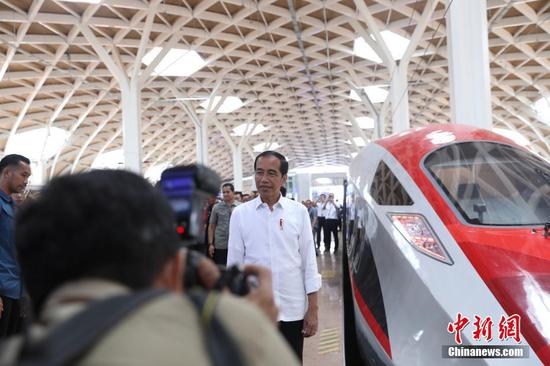

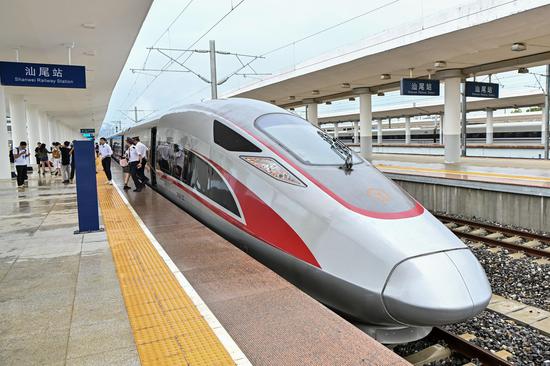



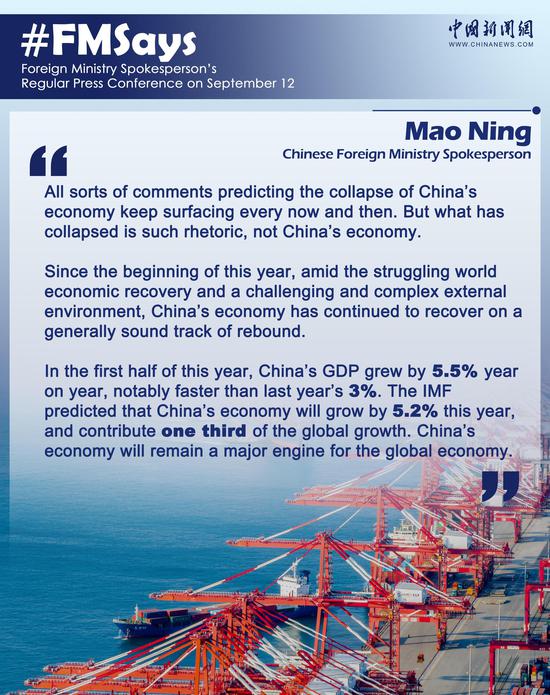


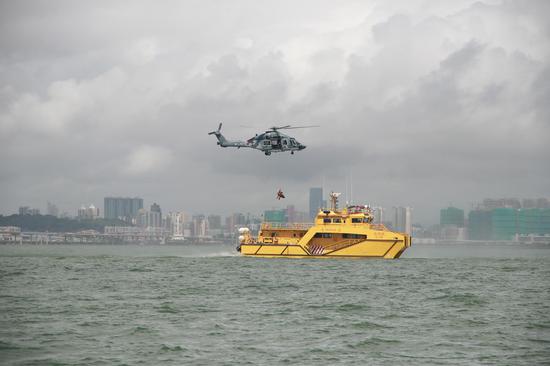



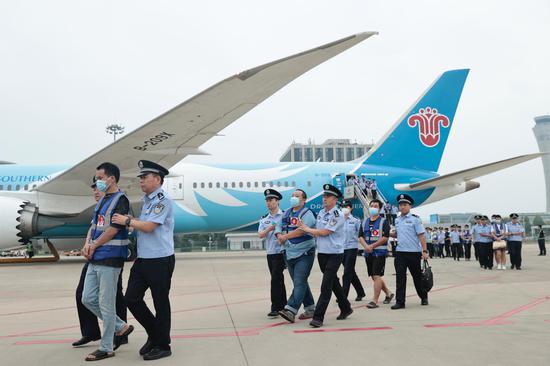


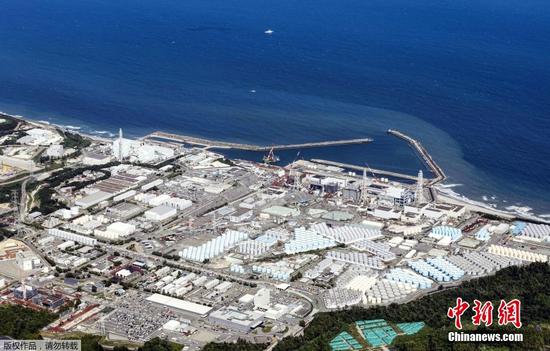


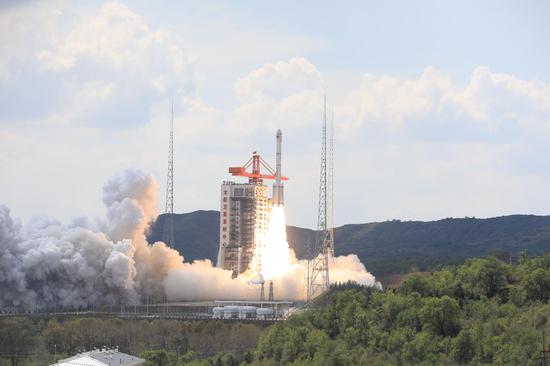






 京公网安备 11010202009201号
京公网安备 11010202009201号